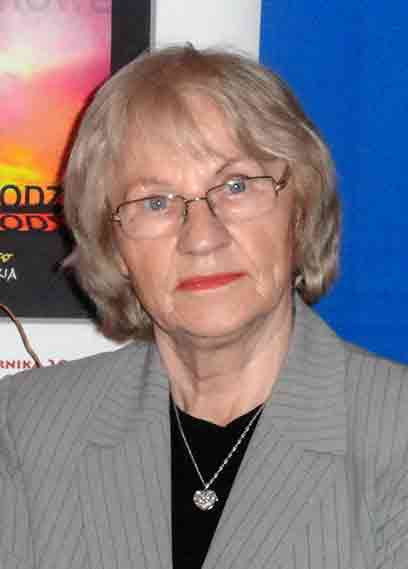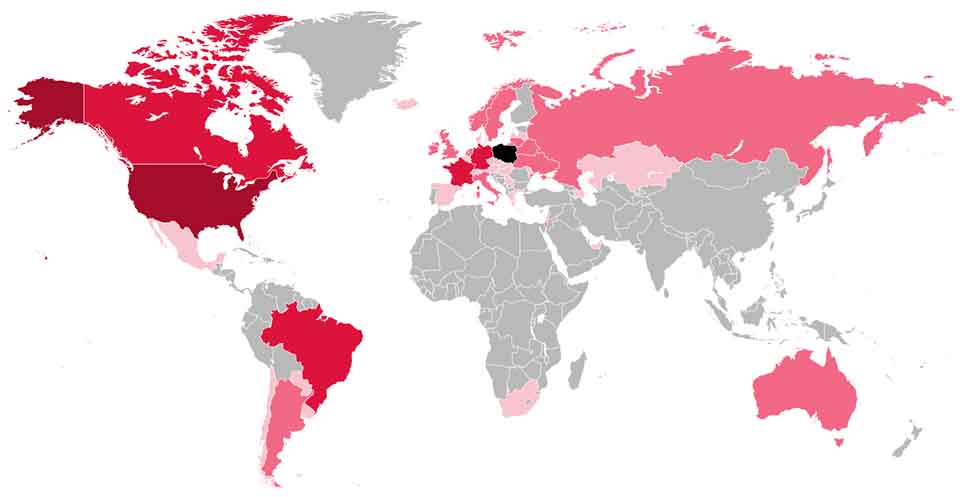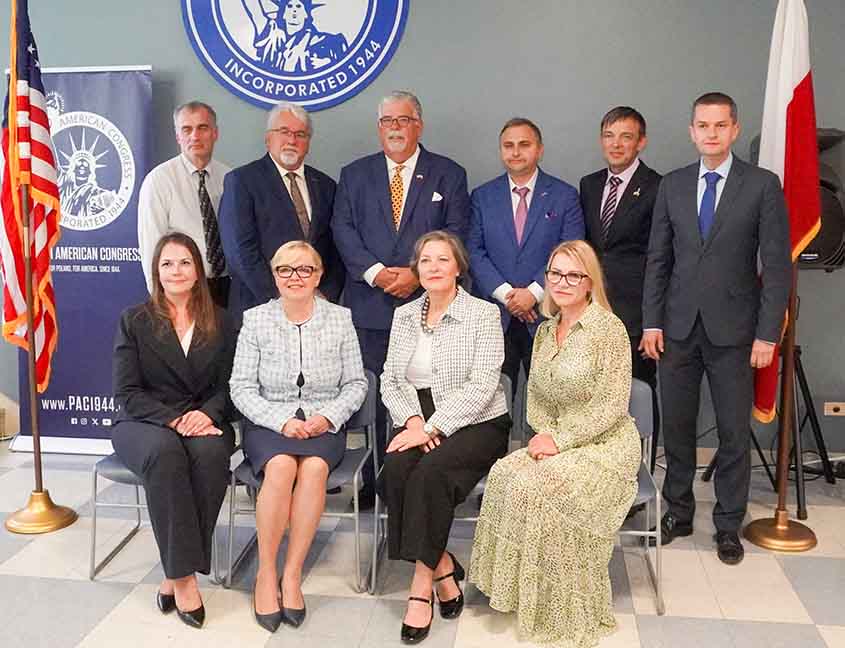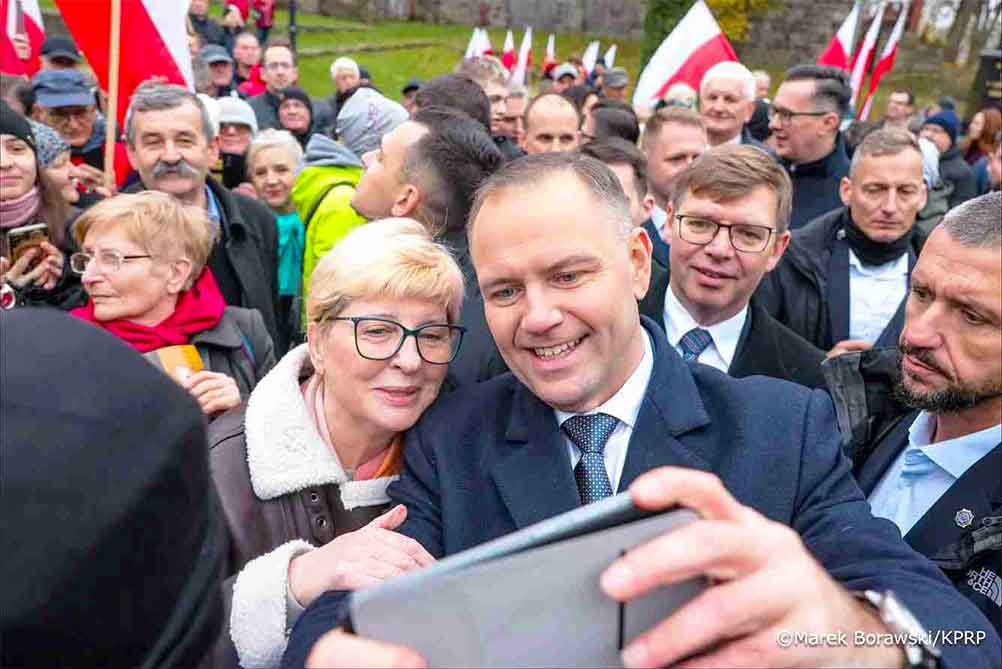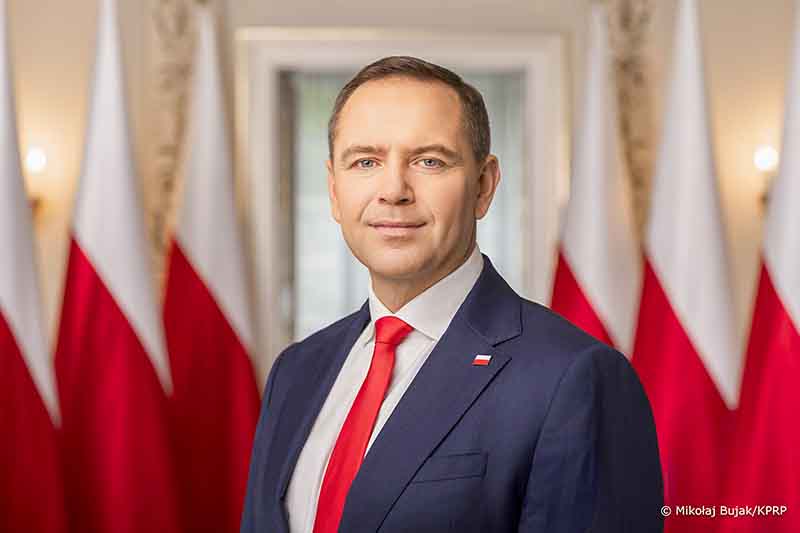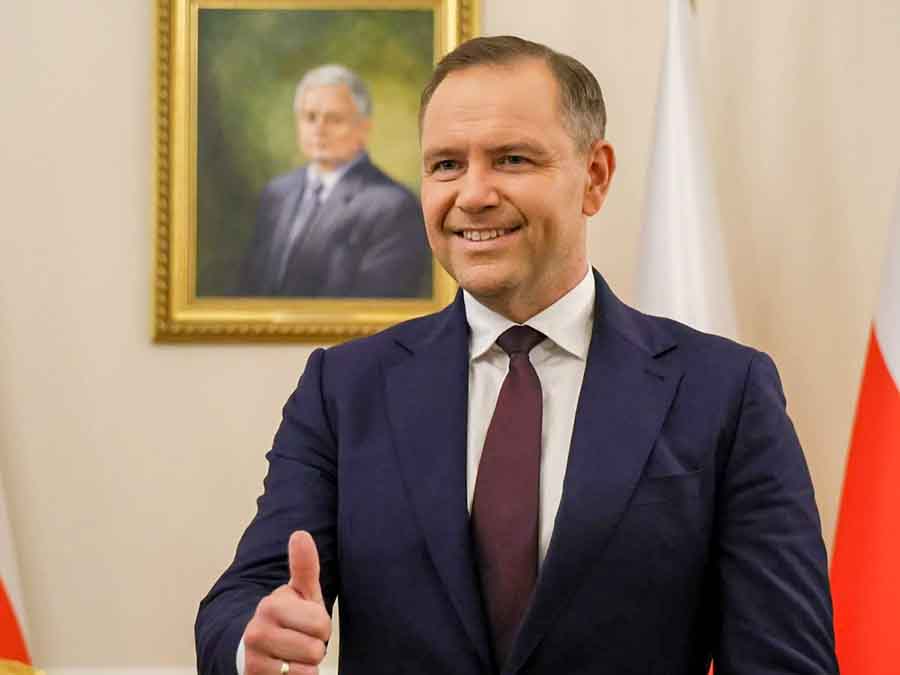For every Pole, November 11th is a special day. I still remember the times when this day was an ordinary date on the calendar, a weekday, and the "Rebirth of Poland" holiday was celebrated on July 22nd.
This year marks the 107th anniversary of Poland regaining its independence. It may be an ordinary anniversary, not a round one, not particularly significant, yet it is special for many Poles. I spent most of the day following the anniversary ceremonies in Warsaw. I devoted most of my attention to the ceremonial changing of the guard at the Tomb of the Unknown Soldier, the speech by President Karol Nawrocki, and the Independence March.
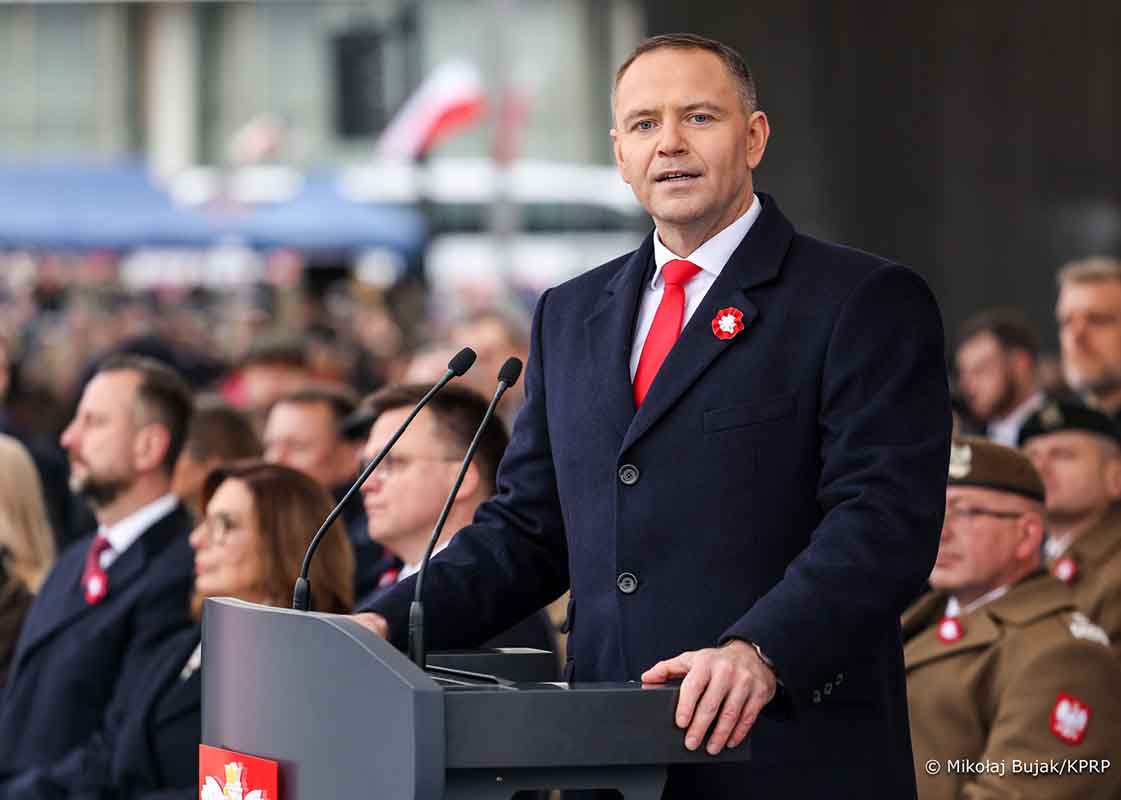
President Karol Nawrocki at the changing of the guard at the Tomb of the Unknown Soldier, 2025 (Source: Prezydent.pl/KPRP/Photo: Mikołaj Bujak)
November 2nd marked the centenary of the unveiling of the Tomb of the Unknown Soldier, a place of tribute to all who died defending their homeland. This symbolic monument contains the remains of the Eaglets – the defenders of Lviv in 1918 – and urns containing the soil of the battlefields where Polish soldiers died for freedom.
The knights of Mieszko I, Bolesław the Brave, Bolesław the Wrymouth, and the scythemen of Tadeusz Kościuszko fought for Poland. They fought for the Poland of the Piast dynasty and for the Polish-Lithuanian Commonwealth. The President emphasized that thirty-five generations had worked for its greatness and its political and economic independence. But, as eminent statesmen warned, freedom must be cherished; independence is not granted once and for all.
The legacy of 35 generations and the word "independence" were ultimately suppressed in 1792 for 123 years, erased from the everyday vocabulary of Poles. Officially erased, they were deeply etched in the hearts of all those who considered the Republic of Poland their homeland.
Successive generations fought to restore Poland's name and territory to world maps. Subsequent uprisings ended in military defeat and political and economic emigration.
The Polish diaspora in the United States listened attentively to the deeply emotional speech of Polish President Karol Nawrocki. Over 9 million Poles living in the United States, though they often speak little or no Polish, acknowledge their Polishness, carry Poland in their hearts, and demand Polish flags at the cemeteries of Polish heroes – soldiers of the Blue Army, World Wars I and II.
Polish independence thought, for obvious reasons, took shape more in exile than at home. It was in Paris after the November Uprising that debates raged over the shape of a reborn Poland; it was in the United States that debates raged over how to regain independence and how to support the country economically, militarily, and diplomatically. The President spoke beautifully of the fathers of independence, but he failed to mention that, thanks to the intercession of JI Paderewski and the Polish diaspora, which ardently supported him, President Wilson formulated the famous 13th point, in which he stated:
An independent Polish state should be erected which should include the territories inhabited by indisputably Polish populations, which should be assured a free and secure access to the sea, and whose political and economic independence and territorial integrity should be guaranteed by international covenant.
The proclamation of November 11th as Independence Day marked the beginning of a series of efforts by the entire Polish nation—both Poles at home and abroad—to rebuild an independent country. This presented many challenges: diplomatic, military, economic, and educational.
After the outbreak of World War I, most of the warfare took place on Polish soil, and the Poles faced the threat of biological annihilation due to famine and mass disease. Aid for the endangered nation came from their compatriots – Polish emigrants from America. Lawyer and banker Jan Smulski was one of the founders of the Polish Rescue Committee and co-organized material aid for the Polish population in the country. He was also part of the Polish delegation received by President Wilson, seeking material aid for the Polish nation.
After the liberation, the primary challenge was establishing the borders of the Polish state. A significant contribution to this effort was the creation and the equipment of the Blue Army. The Polish diaspora amassed ten-million National Fund for political and charitable activities. The Polish diaspora sought loans for the reconstruction and development of an independent Poland.
The great commitment and contribution of the Polish diaspora to the reconstruction of an independent Poland must be remembered and appreciated. Only joint efforts, driven by a love for their homeland, resulted in major economic projects: the Central Industrial Center, the port in Gdynia, the railway line from Silesia to Gdynia, and large-scale industrial construction projects (e.g., the chemical plant in Mościska).
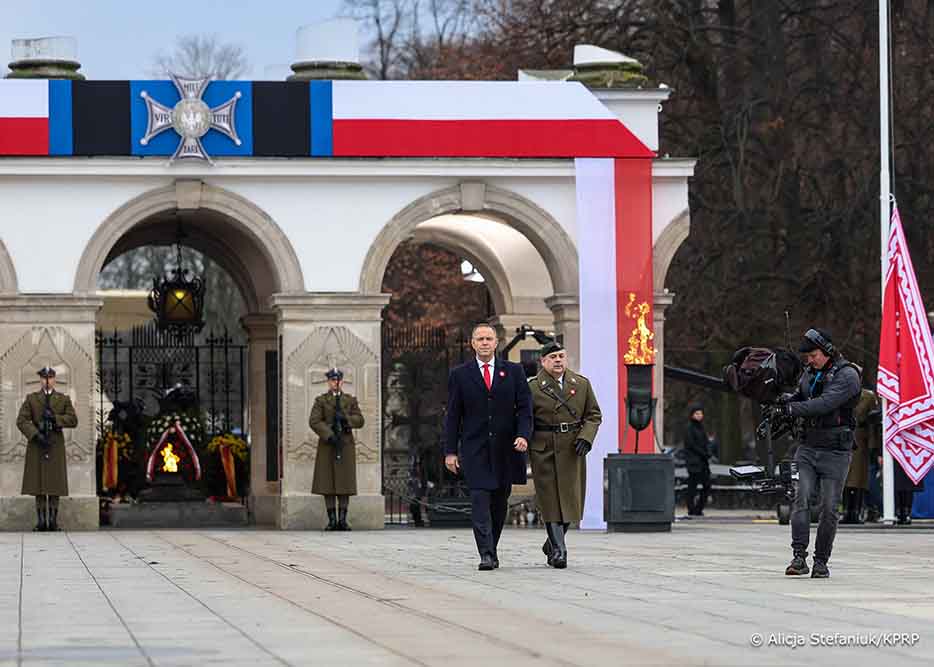
President Karol Nawrocki, changing of the guard at the Tomb of the Unknown Soldier, November 11, 2025 (Source: prezyent.pl/KPRP/Photo: Alicja Stefaniuk)
During the twenty years of independence, administration was unified and the Polish currency was introduced, of which we are so proud and which constitutes our identity.
Polish diplomacy, the foundations of which were formed in exile, defended the Polish raison d'état despite differing visions of the future and reached consensus in the name of Poland's good.
Poles fulfilled their dreams of a free homeland, and to achieve them, they gave up lucrative foreign positions and returned from exile to work for Poland.
Polish schools nurtured patriots who bore witness to their Polishness in 1939 and August 1944, but also at Tobruk, Monte Cassino, and Ancona, in the 303 Squadron, in the Cichociemni units, and in General Maczek's 1st Division.
It was the Polish diaspora that dreamed of a Poland in NATO, and keeps dreaming of a prosperous and independent Poland. The Polish diaspora continues to demand its voice and its participation in building a free, great Poland. I believe the Polish President remembers all this, and when he says "Poland first, Poles first," he means that Poles are a nation of 60 million people living in historic Polish lands and scattered across all continents, but with the colors of white and red at heart.
Translation from Polish by ANdrew Wozniewicz.



